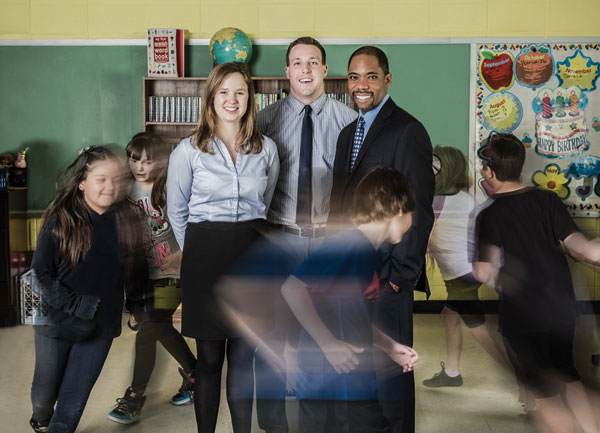Room to grow
This team of TCNJ researchers is working inside schools to evaluate the effectiveness of life-skills programming, ensuring that the programs offered are research based.

Room To Grow

The Problem: Social media is great at connecting young people, but what are the signs that the technology has made them more empathetic or nurtured their sense of social responsibility? School shootings are so commonplace that Americans are numb. School-based anti-bullying programs have proliferated, but so have reports of bully-driven suicide. The team is working inside schools to evaluate the effectiveness of programming developed by Camp Fire New Jersey, part of a national nonprofit dedicated to teaching life skills. The team wants to make sure the programs that are offered to kids are research-based, says Professor James Graham, director of TCNJ’s Children’s Social Development Laboratory.
Their fix: Katharine Scott revived a program dropped 10 years ago that fosters empathy among elementary school children, and added a segment on community service. Then she taught it herself. “Getting children connected to more people in their community, whether it’s their school or town, decreases antisocial behavior and increases academic and social success,” she says. Michael Spekhardt analyzed an existing program meant to fortify self-esteem and hope by designing and administering pre- and post-course tests to participants’. Along the way, he consulted a professor in Finland—an international player in the anti-bullying movement—to determine whether the program fostered participants’ sense of social responsibility.
Their takeaway: The team was gratified by the opportunity to test real-life programming and be granted access to large groups of children. If their data reveals significant outcomes, they may be able to recommend changes for Camp Fire New Jersey’s educational programs and make them models for other Camp Fire programs across the country. “The best thing I could do would be to validate all the hard work they’re doing for children, get more funding and try to end the negative things happening in society with children and schools,” says Spekhardt.
Professor: James Graham
Students: Katharine Scott and Michael Spekhardt
Posted on May 22, 2014

